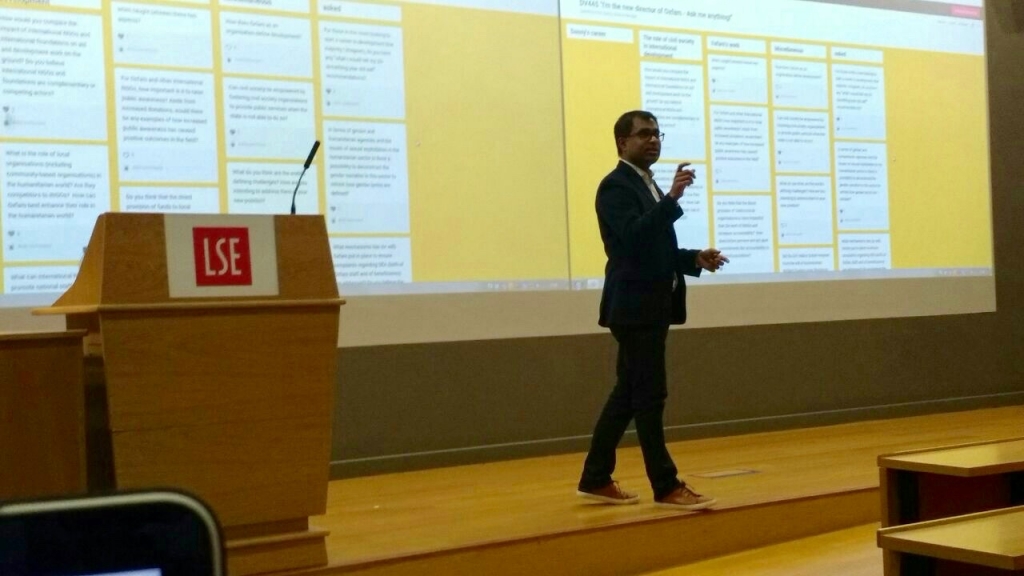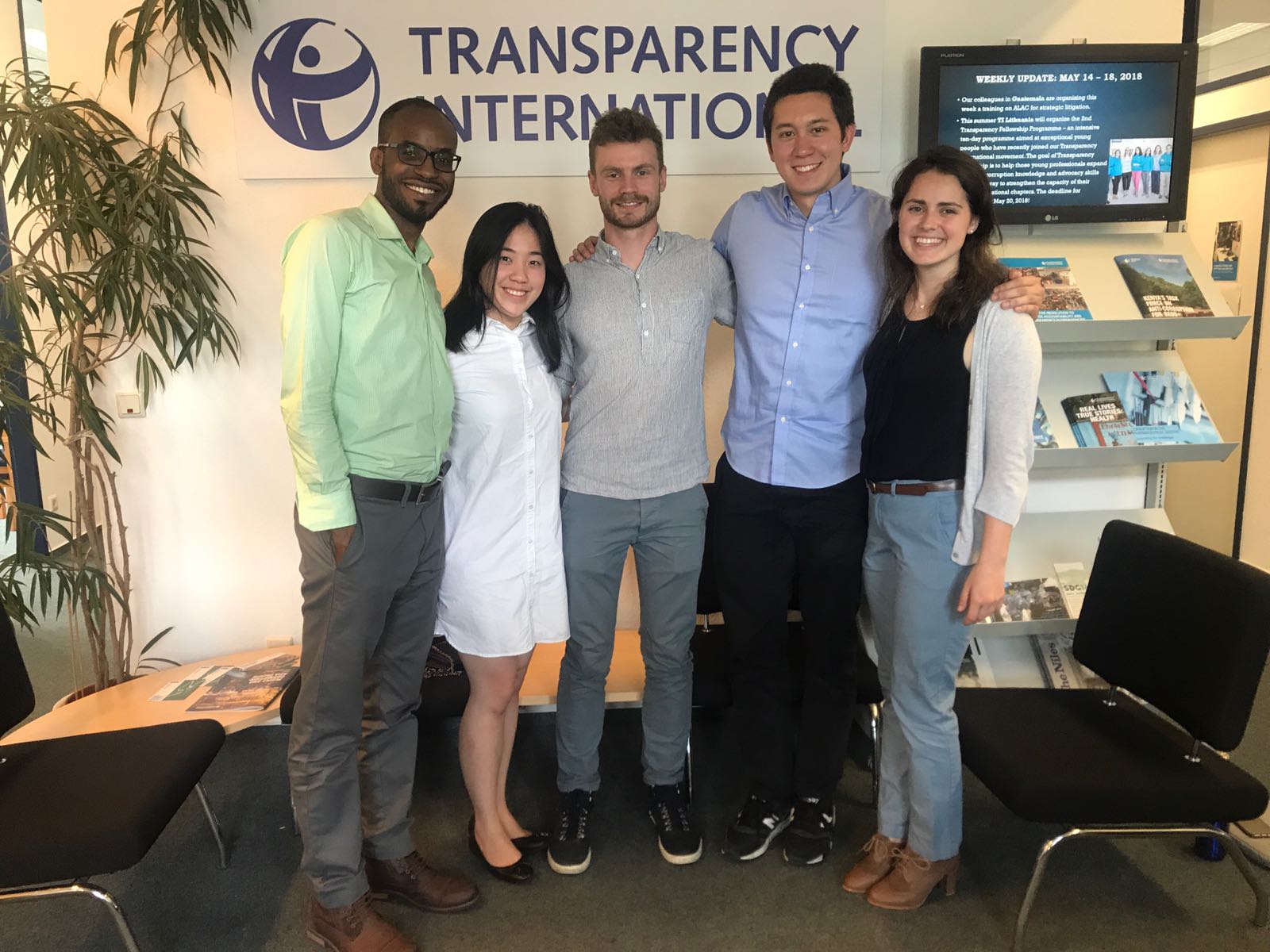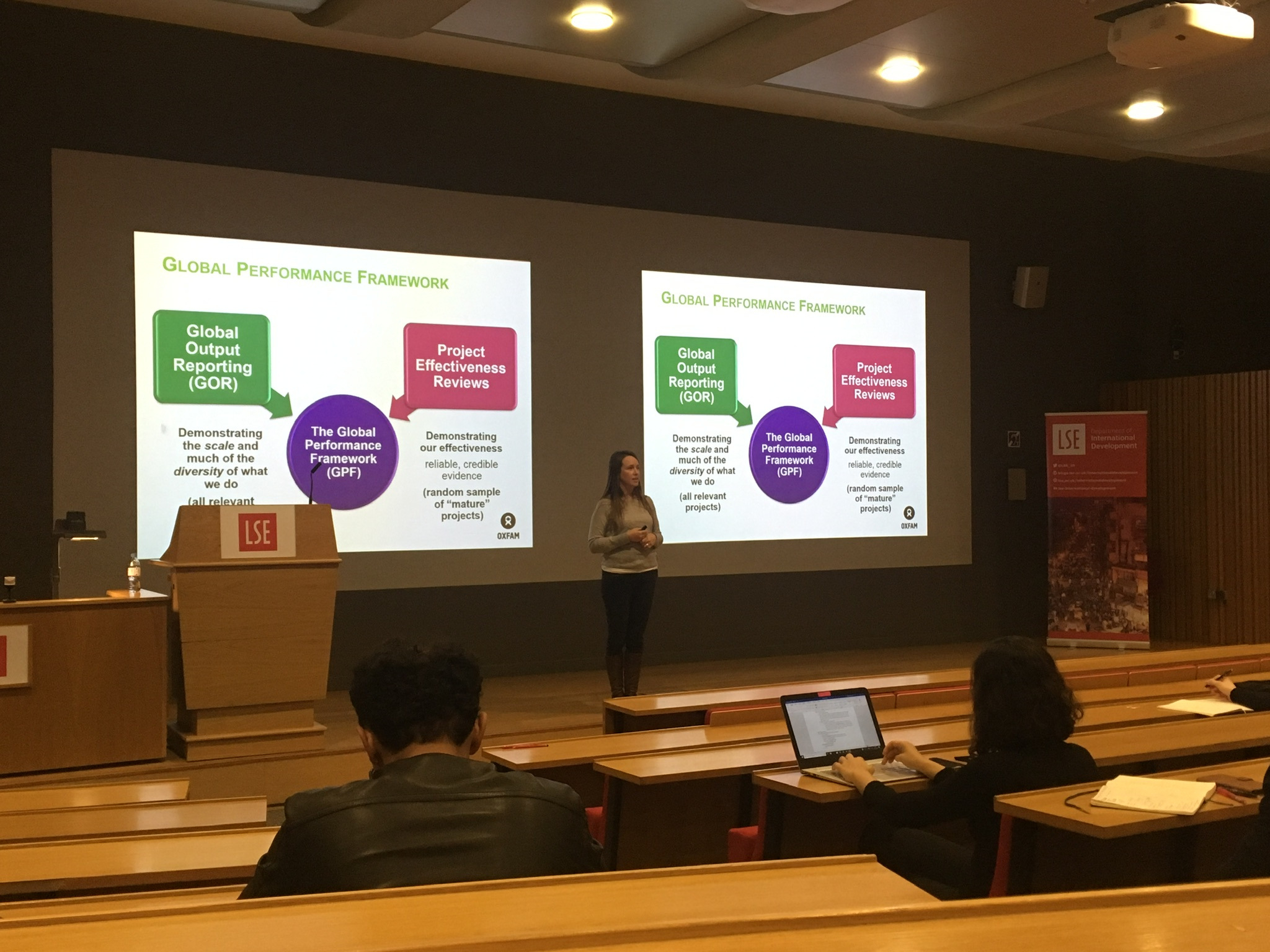For the International Development Department’s Cutting Edge Issues in Development Thinking and Practice series, the new director of Oxfam, Danny Sriskandarajah, answered challenging questions from the Department’s students during a two-hour long Q&A session. Read here about what one of the students took away from the session.

“I am interested in the art of transformation, not in the science of delivery”, said Danny Sriskandarajah, describing his philosophy in his new position as Oxfam’s chief executive. In a compelling two-hour conversation within the Cutting Edge Issues in Development Thinking and Practice lecture series, students and staff of the Department of International Development had the chance to pose their burning questions to Sriskandarajah. He openly shared aspects about his career path and his visions concerning the challenges that Oxfam is currently facing.
Sriskandarajah shared that he was born in Sri Lanka in the 1970s and grew up with his grandparents on a little island in modest housing, without electricity and running water, yet content and well-off for local standards. In the 1980s, when the Sri Lankan civil war began, his family moved to Papua New Guinea, then to Australia, where he graduated in Economics. He later moved to England and did his Masters in Development Studies and a Ph.D. at Oxford University. When asked how his multicultural upbringing influences him today in his new leadership position, Sriskandarajah stated that throughout his life, having a plural cultural identity often meant individuals had to work twice as hard to achieve the same goals. However, today he sees more opportunities for individuals to prove that having a different cultural background is an asset. His lived experience of the “vulgar gap between rich and poor” motivates him to keep striving to reduce inequality worldwide and helps him not to get lost in “elite cosmopolitan globalism”.
Sriskandarajah just recently left the global alliance of civil society organizations CIVICUS, where he held the position of Secretary General and CEO for the past five years. Therefore, a few questions of the audience were aimed at understanding his vision of the role of a modern civil society in development. Being concerned about threats to fundamental civic freedoms and believing that “across the world, the ability to mobilize is being challenged”, he sees a great need for solidarity between civil society organizations. Those parts of civil society that have wide-ranging influence and sufficient resources, such as Oxfam, need to show solidarity and strengthen those parts whose work is inhibited. Local civil society organizations working “close to the bottom”, he stressed, should be supported over the long term and become globally connected.
In a more critical tone, Sriskandarajah was asked if he thinks that Oxfam’s partnerships with the private sector undermine the NGO’s ability to advocate for stricter conditions on corporations. He does not see this risk and explained that Oxfam’s approach is to think about the private sector not as one block, but made up of many different businesses. Transformative social enterprises have made great contributions to local economic development and challenge the notion that civil society formations have “the monopoly of doing good”, he said. Moreover, he believes that non-profit and governmental organizations are no longer sufficient to transform society and that social enterprises may disrupt both charity and corporate work as we know it. However, he is still profoundly concerned with extreme social inequalities resulting from capitalist practices and with the devastating effect of profit-seeking businesses on environmental sustainability. Oxfam’s role is in developing frameworks to ensure greater business accountability, exposing bad practices and building a case for policymakers to prevent those practices, as intended with the campaign Behind the Barcodes.
In the light of the recently surfaced sexual exploitation scandal involving Oxfam employees stationed in post-earthquake Haiti, the audience was keen to hear what mechanisms Oxfam has put into place to address complaints regarding sexual exploitation and abuse both of its staff and beneficiaries. Sriskandarajah reassured the audience that the allegations, which had instantly become an existential question for the INGO, were taken very seriously. He mentioned the 10-Point Plan, which was created to combat sexual harassment and abuse, and acknowledged that as an organization that works towards reducing inequality and empowering disadvantaged individuals, Oxfam needs to be aware of the gendered and intersectional power relations it is working in. Although he did not elaborate on the specific measures taken, Sriskandarajah made it very clear that he intends to lead Oxfam to become a living example for gender justice for the whole sector. Hopefully, he will succeed.
Isabel Redies (@IsabelRedies) is an MSc Development Studies candidate at LSE and a graduate of Humboldt University Berlin. Her primary research interests are post-conflict recovery, environmental peacebuilding and their gendered dimensions.
Our next speaker in the series is Stephan Haggard from UC San Diego – he will be speaking on “Developmental States”. The lecture takes place on Friday 8 February from 4-6pm in the Sheikh Zayed Theatre in the New Academic Building. The series is open to LSE Students and Faculty. Other external guests should visit https://bit.ly/2AxvWVG to reserve a seat.
The views expressed in this post are those of the author and in no way reflect those of the International Development LSE blog or the London School of Economics and Political Science.





